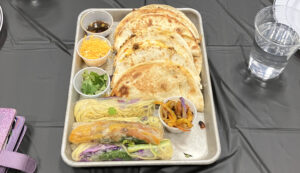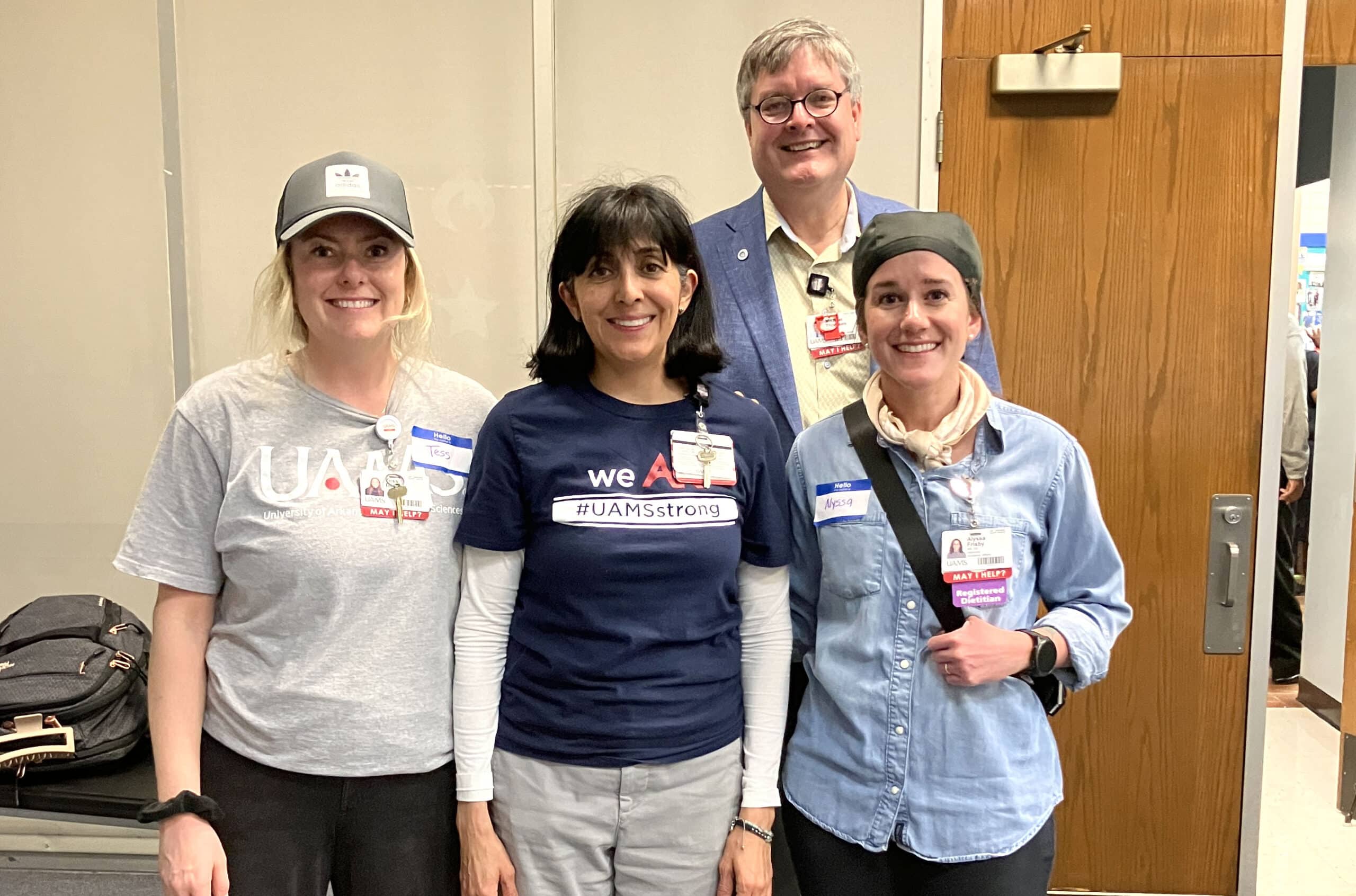UAMS Collaborates with Little Rock School to Promote Healthy Cooking
| The University of Arkansas for Medical Sciences’ (UAMS) Center for the Study of Obesity collaborated with UAMS Culinary Medicine to pilot a cooking demonstration project at Chicot Elementary and Early Childhood Center in the Little Rock School District (LRSD).
The center, which is part of the UAMS Fay W. Boozman College of Public Health, launched the healthy cooking demonstration courses specifically for families affiliated with the Little Rock community school.
“The classes were exciting because it highlighted the potential for community schools to support public health through healthy lifestyle interventions,” said Michael Thomsen, Ph.D., director of the center.
Chicot Elementary is in the southwest part of the city. Data suggests that numerous public health disparities affect the area, including access to healthy foods.
In fact, a general conversation between community members who have in-depth knowledge of the issues led to the creation of the cooking program, according to Stephanie Lopez-Neyman, Ph.D., postdoctoral fellow in the center.
“The cooking demonstration at Chicot is actually the vision of Nicole Chandler of the LRSD community schools and Jennifer Glasgow, chief education officer for the city of Little Rock,” Lopez-Neyman said. “They discussed how they’d like to create cooking demonstration class for families. When Dr. Thomsen learned about their aspirations, he gave me the assignment of making it all come to fruition. That included teaming up with the UAMS Culinary Medicine program.
“They would handle the cooking aspect of the program. The Chicot Elementary staff would recruit the families. I’d be responsible for overseeing the project.”
To maximize the potential of the cooking classes, the center’s team members surveyed grocery options in southwest Little Rock. Lopez-Neyman and Thomsen led an audit of each store within a one-mile radius of Chicot Elementary. Making sure a meal’s ingredients were readily accessible in the neighborhood was important.
Additionally, most of the students and families at Chicot are either African American or Hispanic. Based off the demographics and the audit, the center selected tasty, health-conscious recipes that the families would likely prepare at home.
“We discovered that there were lots of convenience stores, a Family Dollar, Dollar General stores, a Kroger and a Walmart,” Lopez-Neyman said. “But you still must drive to those places. Having reliable transportation is difficult for some of the families.
“The Dollar General I went to had a small produce area that carried basic vegetables and fruits. However, the frozen fresh fruits were very limited.”
Once the cooking demonstration pilot commenced, word spread about what was taking place. The opening session had only four families participate. But with each ongoing session, the number of participants grew.
“We wanted families to have fun and also understand that it’s not expensive to eat healthy,” Lopez-Neyman said. “Our big thing was exposing households to wanting to cook as a family and scale back on going out to eat. We encourage people to eat at home as a family as it tends to be healthier than eating from a restaurant.”

Here’s a photo of a meal prepared by a family participating in the cooking demonstration classes at Chicot Elementary in Little Rock.
To help the center accomplish its goal, the guidance of the UAMS Culinary Medicine program proved invaluable. Alyssa Frisby, registered dietitian and senior brand and project manager for the Culinary Medicine program, said her team emphasizes the importance of nutrition education. Each cooking demonstration places her in immediate contact with community members, helping them live healthier lives.
“It allows us to show participants the different steps and skills needed for each recipe while giving confidence to the participants as they get a better understanding of how to prepare the recipes.” Frisby said. “The demonstrations also provided a low-risk environment for people who are trying out new ingredients or recipes.”
Frisby received lots of compliments about the meals.
“The participants were very receptive to trying the recipes, even if the ingredients were unfamiliar,” she said. “I especially enjoyed watching the children who assisted the adults in preparing the meals and seeing the joy on their faces when they got to be in charge of different tasks.”
Lopez-Neyman also received positive reviews and saw plenty of smiles and laughs from the families. She and the entire center staff loved how the pilot unfolded. The center is now optimistic about expanding the project. Potentially building upon the cooking program with the aid of a grant is ideal, Lopez-Neyman added.
“It started as an idea,” she said. “We simply listened to what people wanted. We partnered with the right groups to make it happen.
“Now that we see that the cooking demonstrations can be a successful, the next step is to find out if we can move it forward — perhaps at other LRSD community schools.”
